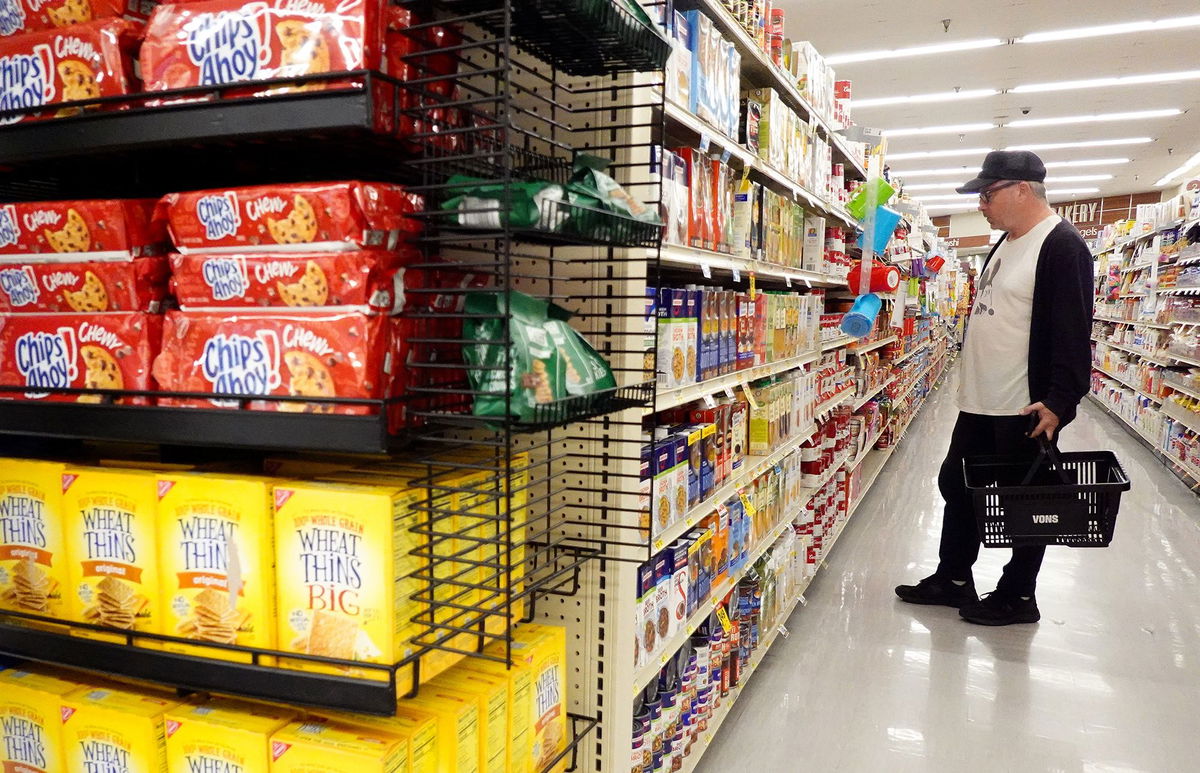Americans’ attitudes about the economy worsened for the fourth straight month

Originally Published: 10 NOV 23 10:04 ET Updated: 10 NOV 23 11:04 ET By Bryan Mena, CNN
Washington, DC (CNN) — Americans are becoming gloomier about the economy with interest rates at a 22-year high and economicgrowth widely expected to slow.
The University of Michigan’s measure of consumer sentiment fell 5% in November, according to a preliminary reading released Friday. That was the fourth consecutive month that sentiment soured, after improving over the summer.
The drop was mostly driven by the expected effects of higher interest rates.
“Ongoing wars in Gaza and Ukraine weighed on many consumers as well,” the university’s surveys of consumers director, Joanne Hsu, said in a release.
Changes in how consumers are feeling varied greatly. Sentiment among young and lower-income US consumers declined the most in the beginning of the month, while sentiment among “the top tercile of stock holders improved 10%, reflecting the recent strengthening in equity markets,” the release said.
Meanwhile, both short-term and long-term inflation expectations worsened this month. Americans’ expectations for inflation rates in the year ahead rose to 4.4% in November, up from October’s 4.2% reading. That’s up markedly from September’s 3.2% and is the highest reading since November 2022.
In a worrisome sign for the Federal Reserve, long-run inflation expectations rose to 3.2% this month, the highest level since 2011. The Fed is intently focused on Americans’ perceptions of inflation. If people simply accept higher prices as a new normal, that can make the central bank’s job of taming inflation extremely difficult.
The Fed wants demand to slow
Fed Chair Jerome Powell gave financial markets a reality check Thursday when he said it’s still not certain that inflation is on track to slow to the central bank’s 2% goal.
“We know that ongoing progress toward our 2% goal is not assured: Inflation has given us a few head fakes,” Powell said at a conference hosted in Washington by the International Monetary Fund. “If it becomes appropriate to tighten policy further, we will not hesitate to do so.”
Stocks slid after Powell’s comments — snapping the S&P 500 index’s longest streak of gains since November 2021 — as Treasury yields spiked. Equities ticked back up Friday morning.
Powell said that demand will likely have to slow for inflation to be successfully defeated, though he acknowledged the progress made over the past year.
The Fed’s preferred inflation gauge — the Personal Consumption Expenditures price index — rose 3.4% in September from a year earlier, down from its four-decade peak of 7.1% in June 2022. But it was unchanged from August.
Meanwhile, the core index, which strips out volatile food and energy prices, rose 3.7% in the 12 months ending in September, a slight improvement from August’s 3.8% annual rise.
Inflation’s descent seems to have stalled a bit, after steadily slowing over the past year, and Fed officials have made it clear that they are not yet convinced inflation has been tamed.
That could mean the Fed hikes once more, though it’s not clear when that could be. Investors are betting on the Fed to hold rates steady for a third time during its upcoming policy meeting in December, according to the FedWatch tracking tool.
This story is developing and will be updated.
The-CNN-Wire
™ & © 2023 Cable News Network, Inc., a Warner Bros. Discovery Company. All rights reserved.